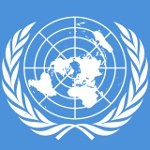International Day of Human Fraternity Date in the current year: February 4, 2026
 The International Day of Human Fraternity was added to the list of the international days observed by the United Nations in December 2020. It is held annually on February 4.
The International Day of Human Fraternity was added to the list of the international days observed by the United Nations in December 2020. It is held annually on February 4.Religious conflicts have accompanied humanity throughout its entire history, especially in regions co-inhabited by people of different religious affiliations. Some of the brightest examples of such conflicts include the persecution of Christians in the Roman Empire and the medieval caliphates, the Crusades, the persecution of Jews, the French Wars of Religion between Catholics and Huguenots, the Troubles in Northern Ireland, and many more.
Such conflicts exacerbate the already difficult situation in the world, interfering with peace and mutual understanding at all levels (local, national, regional and global). That is why the ideas of religious pluralism are becoming more and more widespread these days. Even religions that have very strict views regarding religious pluralism are gradually softening their attitude toward other faiths and becoming more open to interfaith dialogue.
Sadly, this process isn’t as fast as most people would like it to be, since each religion has a conservative faction that wants to maintain the status quo. That is why it is so important to encourage cooperation between people of different faiths, state governments and international organizations in order to promote the development of interfaith dialogue and prevent the aggravation of the already existing ethno-religious conflicts and the emergence of new ones.
The International Day of Human Fraternity was created for this very purpose. It was initiated by Bahrain, Burkina Faso, Egypt, Equatorial Guinea, Morocco, Saudi Arabia, the United Arab Emirates, and Venezuela. These delegations were particularly concerned about the growing religious hatred amid the unprecedented global crisis caused by the COVID-19 pandemic.
It was decided to observe the International Day of Human Fraternity on February 4 because on this day in 2019, Pope Francis and Sheikh Ahmed el-Tayeb, Grand Imam of Al-Azhar, signed the Document on Human Fraternity for World Peace and Living Together, also known as the Abu Dhabi agreement or Abu Dhabi declaration. The document highlights the importance of the culture of dialogue and mutual cooperation between people of different faiths, as well as condemns the abuse of religion by terrorists.
The UN General Assembly established the International Day of Human Fraternity, recalling the Charter of the UN, the Universal Declaration of Human Rights, the Declaration on the Elimination of All Forms of Intolerance and of Discrimination Based on Religion or Belief, the Resolution on the Promotion of Interreligious and Intercultural Dialogue, Understanding and Cooperation for Peace, and other documents that highlight the importance of the human right to freedom of religion and the culture of peace and non-violence.
The main task of the events dedicated to the International Day of Human Fraternity is to develop interfaith and intercultural dialogue both within the UN member states and globally, to encourage education that promotes tolerance, and to combat discrimination based on religion or belief.
- Category
- UN Observances
- Tags
- International Day of Human Fraternity, UN observance, United Nations observance, international observance, interfaith dialogue